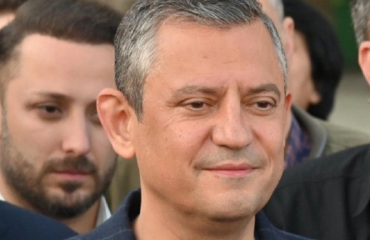

Istanbul 13th High Criminal Court resisted the Constitutional Court’s decision for the release of the imprisoned lawmaker Can Atalay, whose continuation of detention. The local court had resisted the Constitutional Court’s clear order for Atalay’s release in November, stirring a judicial and political crisis in the country.
The judicial tension increased in Türkiye as Istanbul 13th High Criminal Court resisted once again the Constitutional Court’s explicit order for the release of the imprisoned lawmaker, Can Atalay, reiterating its previous decision and sent the file to the Supreme Court of Cassation which previously prompted a judicial crisis in the country.
Istanbul 13th High Criminal Court, on December 27, refused once more to release Can Atalay, a member of parliament for the Workers’ Party of Türkiye (TİP), who was sentenced to 18 years in prison in the Gezi Park case, defying the Constitutional Court’s (AYM) ruling that his rights were violated by being imprisoned.
The local court sent the file to the Istanbul 3rd Supreme Court of Cassation, which previously ignited a judicial crisis in the country.
The Gezi Park trial was one of the most contentious trials of the decade as the sentences are argued to be politically motivated.
Atalay case triggered judicial debate
Can Atalay, who was sentenced to 18 years in prison in the Gezi Park case, was elected as a member of parliament for Hatay in the May elections. As he acquired legislative immunity by being elected, his lawyers applied to the Istanbul 13th High Criminal Court for his release. The local court rejected the request and lawyers appealed to the Constitutional Court arguing that Atalay’s right to be elected and personal freedom were violated.
The top court ruled in November that Atalay’s rights had been violated and sent the case back to the local court with explicit order of Atalay’s release.
The Istanbul 13th Criminal Court resisted the top court’s decision in November and sent the file to 3rd Chamber of Supreme Court, which fueled the crisis.
The Supreme Court stated that the local court should not comply with the Constitutional Court’s decision with an unprecedented ruling, filing criminal complaints about the top court’s members.
Constitutional Court’s decisions are binding and not open for review.
Local courts violating the constitution
The lawyers appealed to Constitutional Court and on December 21 the Court ruled on the violation of rights again.
The eyes turned to the 13th High Criminal Court.
It first announced that it would wait for the reasoned verdict.
The court published its decision on December 27 stating that the local courts are violating the constitution by resisting the ruling.
The Court stated that the judgments of violation of rights in individual applications cannot be subject to review or supervision by any other authority.
“It should be decided that the applicant’s right to individual application, the right to be elected and to engage in political activity, and the right to personal liberty and security have been violated due to the non-implementation of the violation decision of the Constitutional Court,” the reasoned decision read.
Resisted “again”
After the publish of the reasoned decision on December 27 affirming the violation of Atalay’s rights, all eyes were on the Istanbul 13th High Criminal Court for a release decision again.
However, the court declared once again that it will not comply with Constitutional Court’s decision and not release Atalay.
The court sent the file to the Supreme Court again.
Now, everyone is watching to see if the Supreme Court will follow the Constitutional Court’s guidance this time or if this will lead to yet another debate on the state of the judiciary in Türkiye.
Supreme Court defies Constitutional Court: Turkish judiciary in crisis


